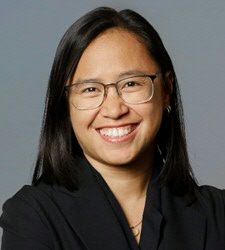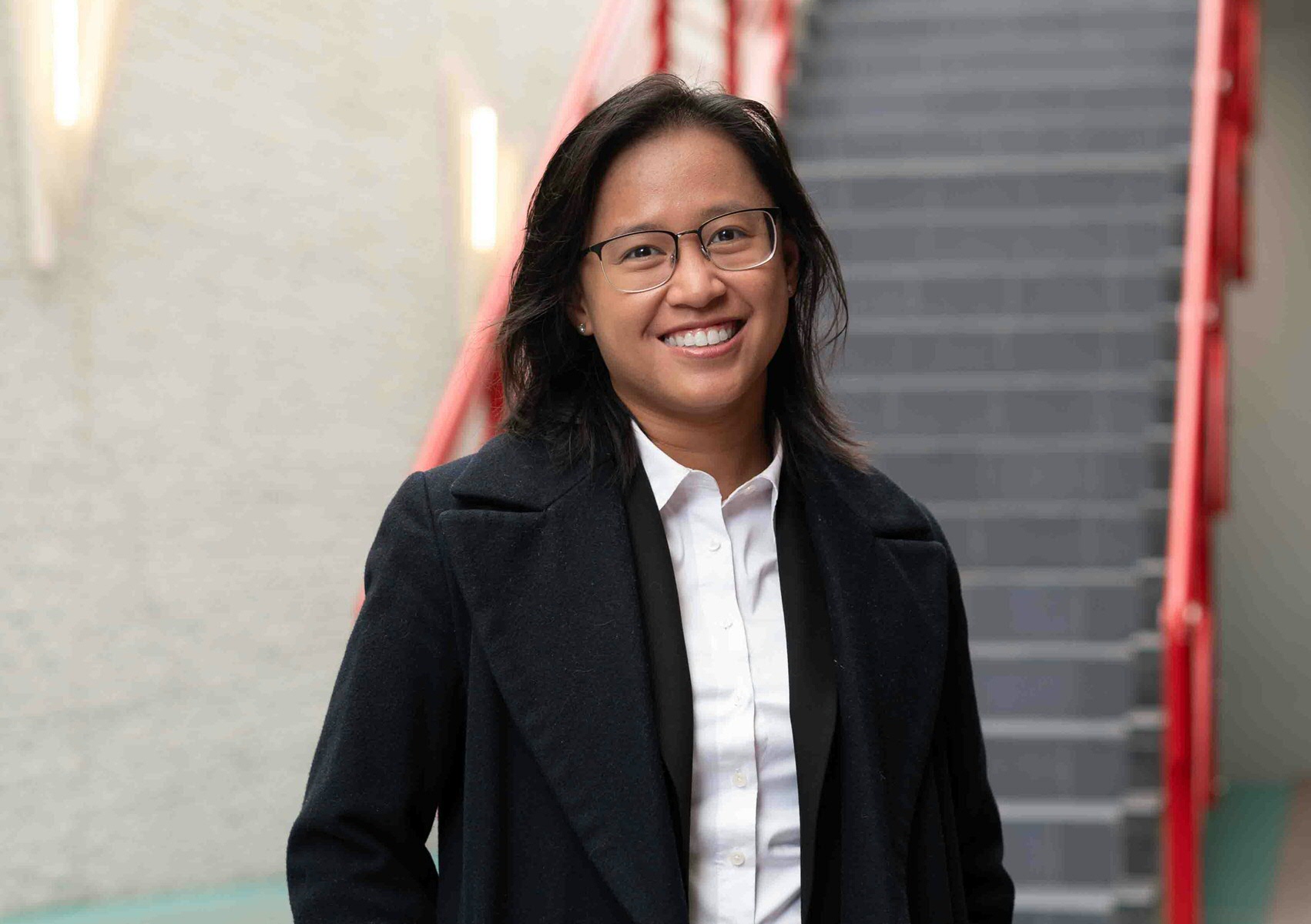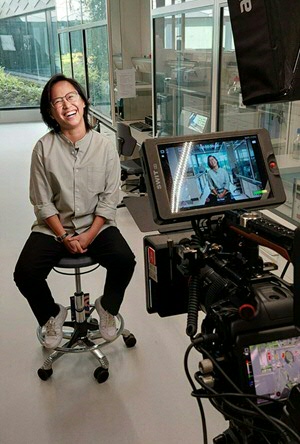Dina Maniar implements small changes with a big impact
Dina Maniar, assistant professor at the Faculty of Science and Engineering, has joined the Young Academy Groningen (YAG). Driven by her passion for a better future, she aims to tackle issues related to sustainability and inclusion through her involvement in the YAG.
Text: Luisa Velásquez, Corporate Communication

Recognition and Rewards
Since 2022, Maniar has been an assistant professor with a teaching profile at the Zernike Institute for Advanced Materials. This is a new type of position under the Recognition and Rewards programme that acknowledges alternative tenure tracks. In the traditional tenure track system, academics advance based on their research output, how many papers they published, and the funding acquired for their research. ‘But as a professor, in addition to conducting research, you also teach!’ Maniar says.
A new track to professorship
Instead of the usual assistant professorship, where 60% of the time is dedicated to research, 30% to teaching, and 10% to managerial tasks, Maniar dedicates 60% of her time to teaching, 30% to research, and 10% to managerial tasks. ‘That’s a lot of hours. Part of my time, I am investigating innovative approaches to teaching, together with the Centre for Learning and Teaching (CLT) at the FSE’, Maniar clarifies. She is part of a European project called Tinker, a project that looks into the effects of digitization of teaching in different European countries at primary and secondary school levels. This digitization directly affects how students adapt to a university education. ‘I’m learning what it means to do research on teaching and what we can implement in our educational system’, Maniar says.
Advocating for education
Her own background has had a great influence on her approach to education. ‘I’m from a developing country and it’s not so easy to get an education there. I received an education, but I see the gap between gender and opportunity. I do see it, I do feel it’, she explains. Maniar believes access to education should not be reserved for the elite. ‘Education needs to be something accessible to everybody: it should be up to the people themselves whether they want to have it or not. It should not be determined by their money or their gender’, she states.
Whenever Maniar works on diversity and inclusivity issues, she relates it to herself. ‘If I can’t understand what it means, how it feels for other people, then the solutions I propose may not be relevant. So, I ask myself: When did I feel excluded?’, she remarks.
Increasing inclusivity in teaching
Her approach to inclusivity spans a wide range of topics, starting with the definition of inclusive teaching. Because of this, she is also collaborating with Dr Novika Purnama Sari from the Faculty of Behavioural and Social Sciences. They are trying to get funding to address issues of inclusivity for students on the autism spectrum. ‘How can we adapt the teaching to the needs and capabilities of more students? That way, education can be more accessible and inclusive’, she concludes.

Research on sustainable plastics
Besides her focus on teaching, Dina Maniar is a polymer chemist. ‘If I have to describe my field in simple terms, I would say I study plastics’, Maniar explains. Plastic use has become vital in our societies due to its properties, such as its lightness and durability. ‘Plastic has given us many technological advantages. Without it, we wouldn’t have come this far, so I’m working to address the problem of plastic waste without sacrificing our needs for these materials. For some applications, we simply can’t fall back on ceramics or metals’, Maniar explains.
Cleaner alternatives beyond recycling
Up until now, policymakers have emphasized the individual’s responsibility to either reduce or recycle plastics. However, Maniar questions how recyclable these materials are in practice. Therefore, she is focusing on the creation of bio-based plastics and how biodegradable they are.
Fossil-based plastic does not only damage the environment because of the waste, but its production also requires a lot of energy. This makes the production of plastic damaging for the environment too. ‘I’m looking into how we can produce this material in a greener way. For example, instead of using very high temperatures, I try to incorporate enzymatic polymerization. This means that the reaction can occur in milder temperatures, around 60 or 70 degrees’, she explains. When these processes operate at milder temperatures, the energy required is reduced, leading to lower carbon emissions.
From lab to industry
So far, these materials have only been used in labs. With some promising results, Maniar has kept a register of the properties of these materials. ‘In the future, if there’s an opportunity where a company says: Oh, they are quite interesting materials and we want to make it on a bigger scale, I'm of course open to that’, she says.

Beyond science
A large part of Maniar’s outreach has focused on her work with her PhD students. Their research is usually in the news and also published on Science LinX . But at the heart of Maniar’s research and teaching approach lies interdisciplinary collaboration. In her fight against fossil-based plastics, she says: ‘This issue is interdisciplinary. It needs to be resolved by an interdisciplinary approach. For instance, by looking into people’s behaviour and consumption habits’.
New opportunities at the YAG
By joining the YAG, she is connected to other academics. ‘I can now be put in contact with other colleagues with the same mindset, the same interests. It’s not something that you can easily do… You can reach out to people, but sometimes you just don’t know where they are’, she says. Maniar also explains that she has always wanted to partake in other outreach activities, such as the Noorderzon festival. Discussions for other upcoming events have also started. In collaboration with the Diversity and Inclusion office, the YAG is aiming to organize an event for International Women’s day.
More information
| Last modified: | 18 December 2024 11.27 a.m. |
More news
-
24 March 2025
UG 28th in World's Most International Universities 2025 rankings
The University of Groningen has been ranked 28th in the World's Most International Universities 2025 by Times Higher Education. With this, the UG leaves behind institutions such as MIT and Harvard. The 28th place marks an increase of five places: in...
-
05 March 2025
Women in Science
The UG celebrates International Women’s Day with a special photo series: Women in Science.
-
16 December 2024
Jouke de Vries: ‘The University will have to be flexible’
2024 was a festive year for the University of Groningen. In this podcast, Jouke de Vries, the chair of the Executive Board, looks back.
